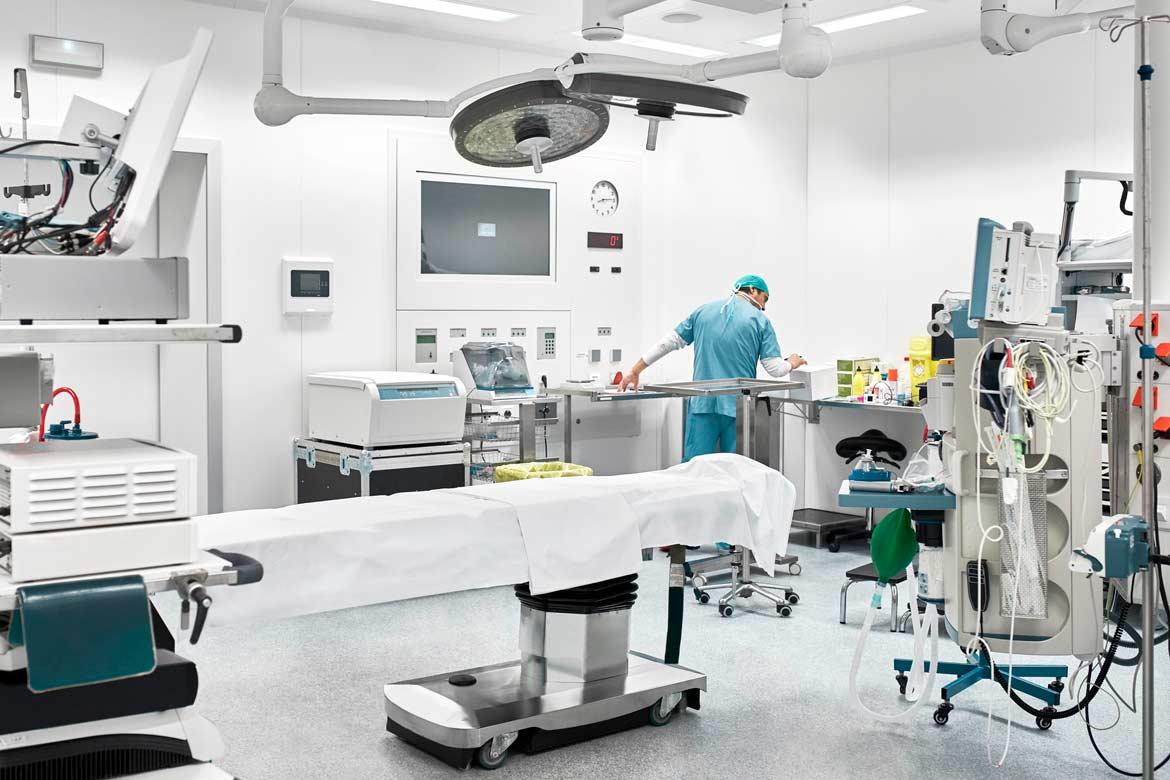-
-
Featured Care Areas

Stomach (Gastric) Cancer
What is stomach cancer?
Stomach cancer, also known as gastric cancer, is an abnormal growth of tissue in the stomach. This abnormal growth of cells may form a tumour or ulcer (painful sore) within the stomach or spread through the wall of the stomach.
The stomach is the organ located between the oesophagus and small intestine. It receives food from the oesophagus for digestion, and then passes it to the small intestine.
There are different types of stomach cancer, and tumours can develop in different parts of the stomach, but the most common type is adenocarcinoma, which forms in the cells of the stomach lining.
In Singapore, stomach or gastric cancer is the 7th most common cancer in men and the 9th most common cancer in women. On average, it is responsible for 300 deaths every year.
What are the symptoms of stomach cancer?
In its early stages, stomach cancer is often asymptomatic. As it develops, symptoms may include:
- Chronic pain in the stomach or abdomen
- Discomfort similar to indigestion
- Feeling bloated after eating
- Heartburn or acid reflux
- Loss of appetite
- Unexplained weight loss
As the cancer progresses, more serious symptoms may include:
- Anaemia (lack of red blood cells in blood)
- Blood in the stools, which makes the stools appear black
- Build-up of fluid in the abdomen
- Difficulty swallowing
- Jaundice
- Vomiting
What causes stomach cancer?
Stomach cancer forms when cells grow abnormally but it is unclear what causes it.
What are the risk factors of stomach cancer?
These include:
- Age. Stomach cancer is more common after the age of 50.
- Chronic gastritis. Long-term gastritis or inflammation of the stomach may affect the stomach lining, where stomach cancer usually forms.
- Diet. A diet high in salted, pickled, and smoked foods is linked to increased risk for stomach cancer.
- Ethnicity. People of Asian descent have a higher risk for stomach cancer.
- Exposure to certain chemicals or substances. Substances such as asbestos are known carcinogens and the working environment in coal, metal, timber and rubber industries may also increase the risk.
- Family history. People who have a close family member with stomach cancer or inherited genetic conditions such as Lynch syndrome face a higher risk.
- Gender. Men are more likely to get stomach cancer compared to women.
- Infection with helicobacter pylori (H. pylori) bacterium or Epstein-Barr virus. People with stomach cancer often have an infection with helicobacter pylori but not everyone who has this infection will develop stomach cancer.
- Past surgical procedures. Past surgery affecting the stomach, such as surgery for stomach ulcers, may increase the risk for stomach cancer.
- Smoking. Smoking increases your risk for many types of cancer including stomach cancer.
- Stomach polyps and ulcers. Polyps are abnormal growths that form on the stomach lining.
What are the complications and related diseases of stomach cancer?
Complications of stomach cancer, if left untreated, include more severe symptoms such as jaundice and build-up of fluid in the abdomen. This can lead to life-threatening bleeding, perforation, and spread to other organs like the liver, lung and bones.
Possible complications post-surgery, especially if part or all of the stomach has been removed, include:
- Changes in bower habits. Surgery to remove the stomach affects how your body processes food.
- Inability to eat regular meals. You may find that you feel very full even after small meals.
- Vitamin deficiency. Your ability to absorb nutrients will be affected, which may lead to conditions like anaemia or brittle bones (osteoporosis).
- Dumping syndrome. Your reduced capacity for digesting sugar and starch may lead to a sudden drop in blood pressure, as your small intestine will draw water from the rest of the body, including your blood.
How to prevent stomach cancer?
While there are no known ways to prevent stomach cancer, you can adopt some healthy habits to reduce the risk:
- Eat less salted, pickled and smoked foods. Over time, these foods can damage the stomach lining.
- Eat more fruits, vegetables and whole grains. A healthy and balanced diet can help reduce your risk for many types of cancer including stomach cancer.
- Get more exercise. Being physically active and fit benefits your overall health and lowers your risk for many diseases.
- Maintain a healthy body weight. If you are overweight or obese, losing weight can help reduce your risk.
- Stop smoking. Smoking increases the risk of cancer developing in the part of the stomach near the oesophagus. It also increases your risk for many other types of cancer.
- Seek treatment for infections and ulcers. Infection with the bacterium H. pylori can be treated with antibiotics.
This page has been reviewed by our medical content reviewers.
Need help?
For enquiries, please call
+65 6575 7575
For appointment bookings, please WhatsApp
+65 8111 9777







